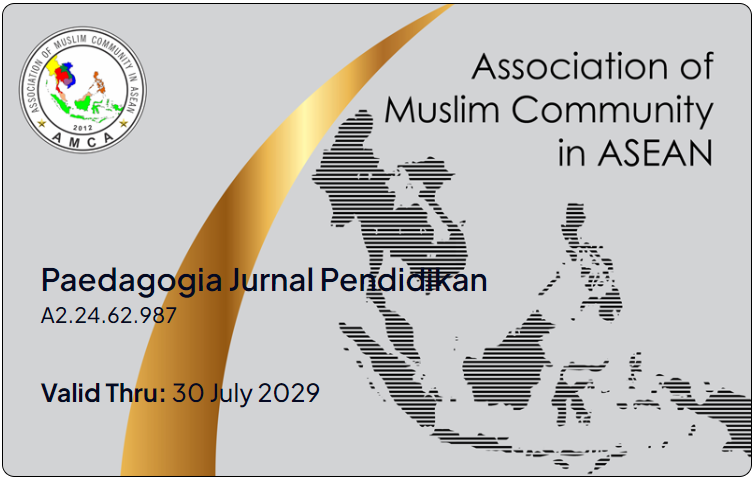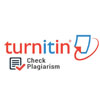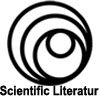The Effectiveness of Spritual Emotional Freedom Technique (SEFT) Therapy to Increase Motivation to Memorize the Quran and Reinforcement of Students at the Baitul Ilmi Tahfidz Putri Islamic Boarding School in Bima City
Abstract
This study explores whether the application of Spiritual Emotional Freedom Technique (SEFT) therapy can effectively enhance the motivation and reinforcement of students in memorizing the Qur’an at the Baitul Ilmi Female Tahfidz Islamic Boarding School in Bima City. To investigate this issue, the study utilized a quantitative research approach with a one-group pretest-posttest design. The participants consisted of 16 ninth-grade students from the Baitul Ilmi Female Tahfidz Islamic Boarding School. Data were gathered using standardized instruments measuring motivation and reinforcement, and subsequently analyzed through a series of statistical procedures, including normality testing, paired samples t-test, and Pearson correlation analysis. The findings revealed that the data were normally distributed, and there was a statistically significant increase in both motivation and reinforcement after SEFT therapy was applied (p < 0.001). Descriptively, students showed greater enthusiasm in attending tahfidz activities, became more confident in memorizing, and were more emotionally resilient. Reinforcement was reflected through improved self-perception, responsiveness to praise, and consistency in memorization practices. However, the correlation analysis showed no significant relationship between motivation and reinforcement (r = -0.079; p = 0.771), indicating that while both improved independently, they were not directly linked statistically. These results suggest that SEFT therapy is effective in enhancing students’ psychological and emotional readiness for Qur'anic memorization, though the effects on motivation and reinforcement function separately
Downloads
References
Ahad, F., Fithria, F., & Atika, S. (2025). Asuhan keperawatan pada keluarga dengan anak usia remaja di Kecamatan Darussalam Aceh Besar. Indonesian Journal of Health Science, 5(2), 231–239.
Cahyaningtyas, E., Widiyanto, B., & Kusuma, M. (2019). Penguatan Sikap Peduli Lingkungan Peserta Didik melalui Pendekatan Jelajah Alam Sekitar (JAS) Berbasis Model Problem Base Learning (PBL). Cakrawala: Jurnal Pendidikan, 13(2), 56–63.
Damayanti, Hafsyah, Naulia Naulia Rizky, and K. S. (2024). Pengaruh Apresiasi dan Motivasi dalam Meningkatkan Minat Belajar Siswa Madrasah Ibtidaiyah Kelas Rendah. LANCAH: Jurnal Inovasi Dan Tren, 2(2), 829–834.
Daulay, S. S., Suciyandhani, A., Sofian, S., Julaiha, J., & Ardiansyah, A. (2023). Pengenalan Al-Quran. Jurnal Ilmiah Wahana Pendidikan, 9(5), 472–480.
Ilhami Yuni Nur, F. (2021). PENGARUH TERAPI SEFT TERHADAP POST DURAL PUNCTURE HEADACHE (PDPH) POST SECTIO CAESAREA DENGAN SPINAL ANESTESI DI RSI MUHAMMADIYAH KENDAL. Poltekkes Kemenkes Yogyakarta.
Noer, Muhammad Ali, and A. S. (2017). Konsep adab peserta didik dalam pembelajaran menurut az-zarnuji dan implikasinya terhadap pendidikan karakter di Indonesia. Al-Hikmah: Jurnal Agama Dan Ilmu Pengetahuan, 14(2), 181–208.
Prasetya, P. U. (2020). Pengaruh Intensitas Menghafal Al Qurâ€TM an Dan Motivasi Belajar Terhadap Prestasi Akademik Melalui Mediasi Stres Akademik Santri Di Pondok Pesantren. Jurnal Kewidyaiswaraan, 5(2), 12–25.
Prihartanta, W., Perpustakaan, J. I., & Komunikasi, D. (2015). Teori-teori motivasi. Jurnal Adabiya, 1(83), 1–14.
Rahmawati, A., & Prasetiyanto, M. A. (2023). PENINGKATAN MOTIVASI BELAJAR BERBASIS TERAPI SEFT (SPIRITUAL EMOTIONAL FREEDOM TECHNIQUE). JURNAL EDUKAPRENEUR SAINS DAN HUMANIORA, 4(2).
Ryan, Richard M., and E. L. D. (2017). Self-determination theory: Basic psychological needs in motivation, development, and wellness. Guilford publications.
Sufa, S. A. (2017). Tren gaya hidup sehat dan saluran komunikasi pelaku pola makan food combining. Jurnal Komunikasi Profesional, 1(7), 105–120.
Suryani, Delina, Asep Kurniawan, and I. U. (2020). IT Self Efficacy, IT Anxiety dan Minat Menggunakan E-money. Jurnal Riset Akuntansi Dan Keuangan, 8(1), 89–108.
Windarto, Y. E. (2020). Analisis penyakit kardiovaskular menggunakan metode korelasi pearson, spearman dan kendal. Jurnal Saintekom: Sains, Teknologi, Komputer Dan Manajemen, 10(2), 119–127.
Yana, H. H., & Sopian, A. (2025). KONTRIBUSI PENDIDIKAN ISLAM DALAM MEMBANGUN KESEHATAN MENTAL MENURUT PERSPEKTIF AL-QUR’AN. Jurnal Pengembangan Dan Penelitian Pendidikan, 7(1).
Copyright (c) 2025 Paedagogia: Jurnal Pendidikan

This work is licensed under a Creative Commons Attribution-NonCommercial 4.0 International License.
The author agrees to the following conditions upon publishing a work to Paedagogia: Jurnal Pendidikan:
1. Each article is licensed under a Creative Commons Attribution-NonCommercial 4.0 International License. The author(s) recognizes that Paedagogia: Jurnal Pendidikan has the right to be the first to publish under a Creative Commons Attribution-NonCommercial 4.0 International License. This license permits the copying and redistribution of this material in any form or format, as well as the composition, modification, and creation of derivative works of this material for any purpose, but Non commercial, as long as the author is credited with the original work.
2. Authors may submit articles separately or arrange for non-exclusive distribution of manuscripts previously published in this journal in other forms (e.g., to the author's institutional repository, publication in books, etc. ), provided that the manuscript is acknowledged as having been published first in the Paedagogia: Jurnal Pendidikan.
3. A copyright submission agreement must attach each approved manuscript prior to publication. You may obtain the form for the copyright submission agreement here (INA) (EN).

































 This work is licensed under a
This work is licensed under a 